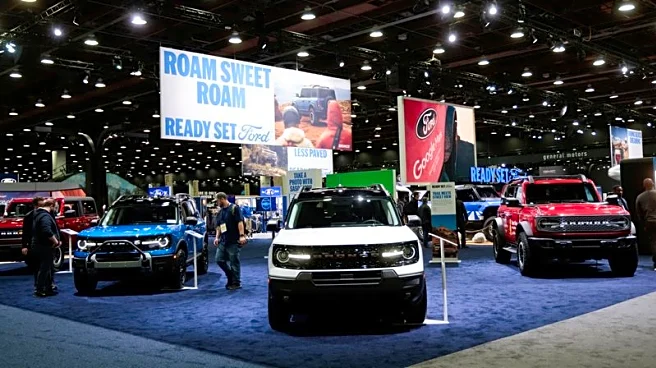What's Happening?
President Donald Trump has introduced a significant change to the United States H-1B Visa program by imposing a $100,000 fee for new applicants. This move is part of a broader strategy to overhaul the visa system, which is often used by companies to hire skilled foreign workers. Labor Secretary Lori Chavez-Deremer has stated that the new fee is intended to protect American workers by making it more costly for companies to hire foreign labor, thereby encouraging the employment of domestic talent. The decision has sparked discussions about its potential impact on the tech industry and other sectors that rely heavily on H-1B visas to fill specialized roles.
Why It's Important?
The introduction of a $100,000 fee for H-1B visa applicants could have significant implications for U.S. industries, particularly in technology and engineering, where there is a high demand for skilled workers. Companies that rely on foreign talent may face increased costs, potentially leading to a shift in hiring practices or a reevaluation of workforce strategies. This policy change could also influence the global perception of the U.S. as a destination for skilled immigrants, potentially affecting the country's competitiveness in attracting top international talent. While the administration argues that the fee will protect American jobs, critics may view it as a barrier to innovation and economic growth.
What's Next?
As the new fee structure takes effect, businesses and industry groups are likely to assess its impact on their operations and workforce planning. There may be legal challenges or lobbying efforts to modify or overturn the fee, especially from sectors heavily dependent on H-1B visas. Additionally, the policy could prompt discussions in Congress about broader immigration reform and the balance between protecting domestic jobs and maintaining a competitive edge in the global economy. Stakeholders will be closely monitoring the policy's effects on job markets and international relations.












